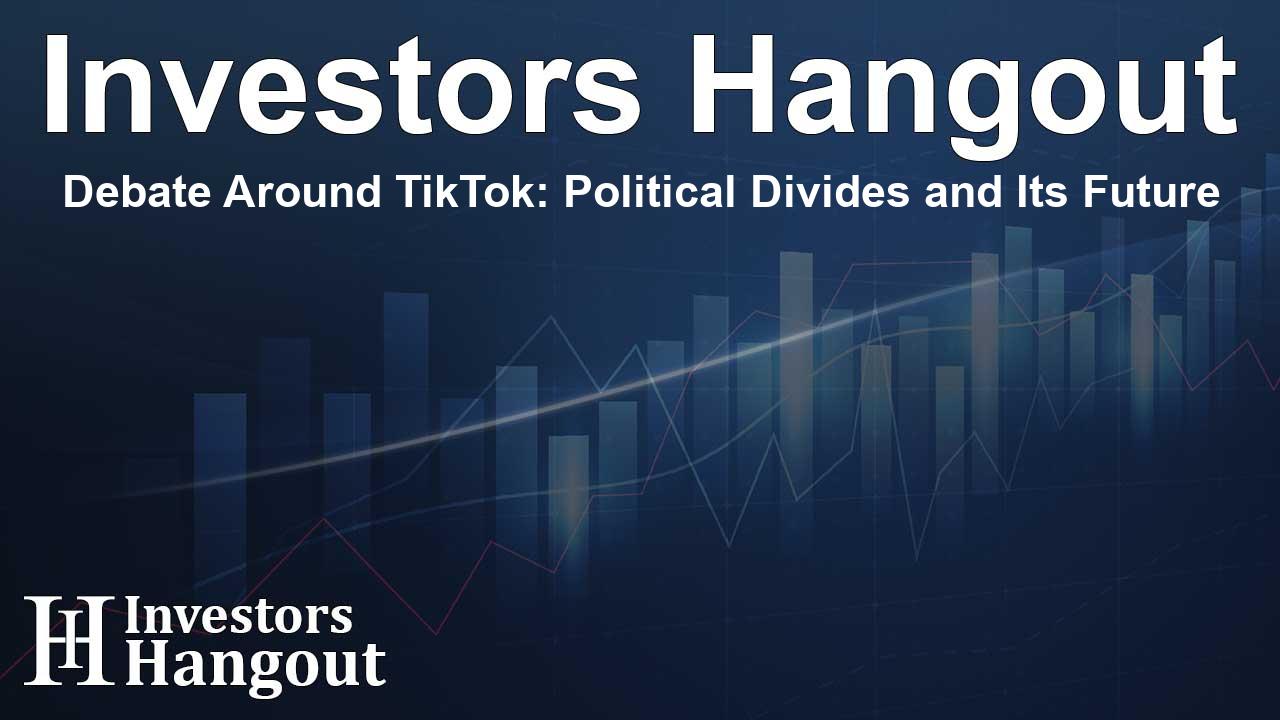Debate Around TikTok: Political Divides and Its Future

Introduction to the TikTok Legal Battle
The fate of TikTok hangs in the balance as major political figures engage in a heated debate over its future in the United States. The ongoing legal battle, accentuated by President Trump's intervention, highlights significant tensions between free speech rights and national security concerns over the Chinese-owned video platform.
The Supreme Court Case
The Supreme Court is set to consider pivotal questions regarding TikTok's operation in the U.S., where approximately half the population engages with the application regularly. This legal proceeding, which reflects on First Amendment rights, captures the attention of both opponents and supporters of the app.
Contrasting Views Among Republicans
While President Trump endeavors to convince the Supreme Court to block a proposed ban on TikTok, many of his Republican peers are advocating for the opposite outcome. This division not only complicates Trump's narrative but also presents a broader discussion regarding implications for free speech amid growing national security concerns.
Significance of TikTok's User Base
With around 170 million active users in the U.S., Timothy Edgar, a former national security official, emphasizes the monumental free speech implications at risk in this case. Edgar argues it's potentially one of the most critical free speech cases in recent history, given the substantial number of users engaging on the platform.
The Role of National Security in the Debate
The rise of TikTok and its parent company, ByteDance, has prompted increasing scrutiny from U.S. political figures, who express concerns over data privacy and national security. Lawmakers assert that TikTok's connections to the Chinese government could allow invasive access to sensitive personal information.
Lawmakers' Stance on TikTok
The bipartisan support for legislation concerning TikTok's operation lays bare the political complexity surrounding the app. With President Biden's signing of measures aiming to compel ByteDance to divest, there's growing consensus about the perceived risks TikTok poses to American users.
Trump's Changing Position
Previously, Trump advocated for a ban on TikTok during his presidency, focusing on the need for the app to be sold to a U.S. company. In a surprising turn, he now expresses a desire to protect TikTok, highlighting its value in his campaign communications and framing any current dependency as a matter of free speech rather than a direct national security concern.
Legal and Political Implications
As the legal battle progresses, the implications of a Supreme Court ruling will extend beyond just TikTok. Should the court uphold restrictions based on national security claims, experts like Edgar warn that it could pave the way for broader measures against other apps with foreign ties, potentially reshaping the landscape of internet freedom.
Preparing for a Potential Ban
Lawmakers have urged major tech companies, including Apple and Google, to be prepared for immediate actions regarding TikTok if the pending legislation is upheld. Although users who already have TikTok installed on their devices may still access it, the lack of updates could lead to significant usability issues over time.
Future of Social Media Platforms
The conversation surrounding TikTok serves as a microcosm of larger debates about digital privacy, free expression, and government oversight. The outcomes of this case could have ramifications for other platforms, suggesting a new era of strict regulation on social media operations tied to foreign ownership.
Frequently Asked Questions
What is the main legal issue surrounding TikTok?
The key legal issue focuses on whether the U.S. can impose a ban on TikTok based on national security concerns while upholding First Amendment rights.
How has TikTok responded to security concerns?
TikTok has contested national security claims, arguing these assertions infringe on free speech rights and that the U.S. has no grounds to impose a ban based solely on concerns about foreign influence.
What are the implications of the Supreme Court's decision?
The Supreme Court's ruling could set a precedent for how social media platforms with foreign ties are regulated and could impact digital free speech across the internet.
Why did Trump change his stance on TikTok?
Trump's shift reflects a broader recognition of TikTok's influence on American culture and its significance during his political campaigns, contrasting with his previous efforts to restrict its operations.
What might happen to TikTok if the ban is upheld?
If upheld, TikTok would face significant operational restrictions, possibly requiring divestiture from its parent company ByteDance, or leading to future unavailability of updates, rendering the app less functional over time.
About Investors Hangout
Investors Hangout is a leading online stock forum for financial discussion and learning, offering a wide range of free tools and resources. It draws in traders of all levels, who exchange market knowledge, investigate trading tactics, and keep an eye on industry developments in real time. Featuring financial articles, stock message boards, quotes, charts, company profiles, and live news updates. Through cooperative learning and a wealth of informational resources, it helps users from novices creating their first portfolios to experts honing their techniques. Join Investors Hangout today: https://investorshangout.com/
Disclaimer: The content of this article is solely for general informational purposes only; it does not represent legal, financial, or investment advice. Investors Hangout does not offer financial advice; the author is not a licensed financial advisor. Consult a qualified advisor before making any financial or investment decisions based on this article. The author's interpretation of publicly available data shapes the opinions presented here; as a result, they should not be taken as advice to purchase, sell, or hold any securities mentioned or any other investments. The author does not guarantee the accuracy, completeness, or timeliness of any material, providing it "as is." Information and market conditions may change; past performance is not indicative of future outcomes. If any of the material offered here is inaccurate, please contact us for corrections.